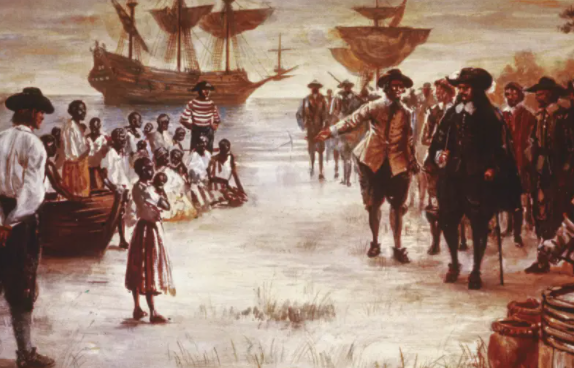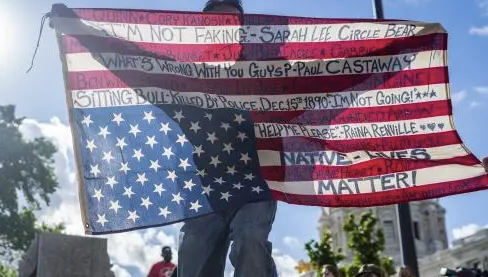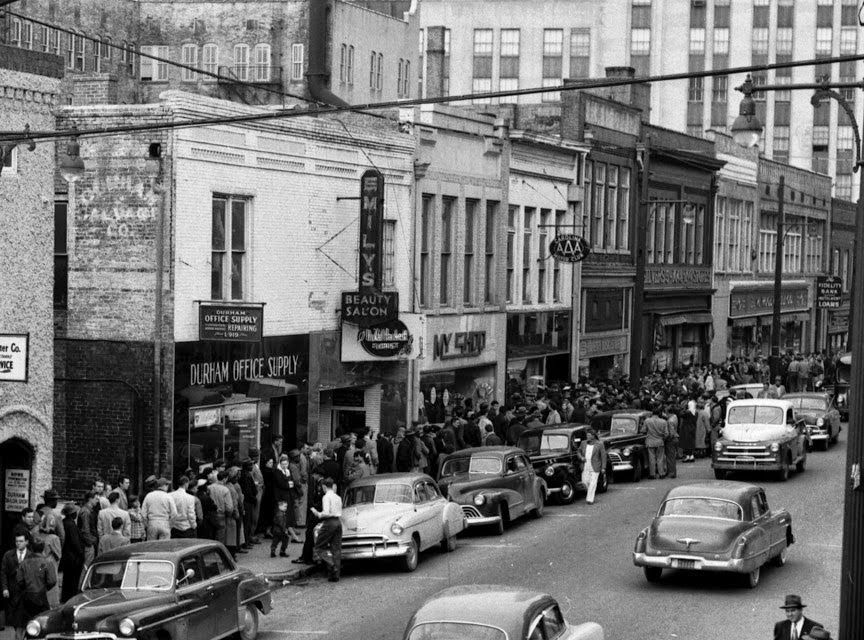Before we talk about why Black Americans are unquestionably owed reparations, let’s take it back in time from the very beginning so we can paint a lucid picture of why this is greatly needed in America right now. Black History began in 1619, when “20 plus odd negroes” were brought to what was then known as “Point Comfort” in Virginia. 250 years later these subjugated people were brought to the North American continent. Black people were enslaved and faced the most unimaginable treatment. They were considered property, women were raped and beaten, lynched when they tried to escape to a better life, and let’s not forget the tearing apart of families.

Did you know One in five children were separated from their parents?
The enslaved didn’t become emancipated until 1865 and even then, they had to deal with the constant racist torture of trying to live “free.” White supremacist ideologies and infrastructures became the new policy, forcing the descendants of enslaved people to poverty.
Did you know that white people received reparations for the economic losses that they took because they were forced to emancipate the enslaved people?
Even Native Americans and Japanese-Americans received some form of reparations. Native Americans earned a portion of the land that was stolen from them. Japanese-Americans were given financial compensation and the U.S. helped ensure through the Marshall Plan, that survivors of the Holocaust and their descendants received reparations from Germany.

I guess the real question is, why did America think the newly freed Black people didn’t deserve the same treatment?
Years have continued to pass by without regret or even repayment for the forced labor of our ancestors. However, somehow America continues to benefit from Black American contributions by the people that were enslaved. Do they not think that generations later, people are going to start demanding America to pay up? How is it that America is reaping the benefits of the enslaved, but the descendants of the enslaved are unable to reap these same benefits?
American racism still exists at an unfair high rate. Today, systematic inequality persists in the form of housing discrimination, unequal education, police brutality, mass incarceration, employment discrimination, and massive wealth and opportunity gaps. Economic data indicates that for every dollar the average white household holds in wealth the average Black household possesses a mere ten cents.

Assembly member Shirley Weber, signed an assembly bill AB3121, approved by the California Governor Gavin Newsom, to prepare a task force to study and make recommendations on reparations for slavery. It was signed in October of 2020, composing the first of its kind, in response to the major amount of protest from the nation demanding justice against racial injustice and police reform following the immense amount of murders done to the African American people.
“As a nation, we can only truly thrive when every one of us has the opportunity to thrive. Our painful history of slavery has evolved into structural racism and bias built into and permeating throughout our democratic and economic institutions,” said Newsom in the release.
Widespread protests across the country are insisting on a written change in how the law treats the Black community and it’s going to start with reparations. If you ask me, I expect there to be monetary reparations that Black America can use to rebuild our own communities, our own resources, and our own financial markets. Black businesses will be able to thrive with other Black businesses and can continue what our great ancestors tried to do when they created The Greenwood District. This time, whoever tries to burn or take down our establishments will go to jail or be met with great pushback from the Black American community.

Black Americans were excluded from government policies such as the Homestead Acts, the Federal Housing Acts, and the GI Bill.
What does this mean?
It means, today, Black American families have less than 10% of the wealth white families have. Unfortunately, what the media in America and even our own government, try to present about Black Americans, is that there is a lack of an industrious attitude and we do not have the drive to be financially ahead. This couldn’t be further from the truth. How can a group of people that did most, if not all, of the work to build America, not have the same drive to accomplish success on their own? The real explanation is the gigantic gap that comes from post-emancipation and it’s racially discriminating policies that prevented and still prevent Black Americans from gaining the same, if not more wealth than whites.

A House committee debated a bill recently that would direct more than a dozen experts to examine how the U.S. government supported slavery from 1619 to 1865 and created laws that discriminated against formerly enslaved people and their descendants.
“We are at a defining moment in U.S. history and reparative justice for the legacy of slavery demands facing the fierce urgency of now.” – said Dreisen Heath, a researcher and advocate from Human Rights Watch
The bill does not mandate payments, though. House Judiciary Committee Chairman Rep. Jerry Nadler noted in his opening statement that many involved in reparative justice efforts today are focused on community-based programs and “righting wrongs that cannot be fixed with checks alone.”
I find it amusing to see the amount of people that have an opinion on whether Black people should receive reparations or not. Some argue it’s a bad idea because who would they pay? Or why should they pay the descendants something that didn’t happen to them personally.
Then you have others like Kirsten Mullen and economist William Darity of Duke University, who calculated that out of an approximate 45 million Black Americans, about 40 million would be eligible recipients of these funds if eligibility is based on whether their ancestors were enslaved in America.
That would result in payments between $300,000 to $350,000 per person or $13trillion in total.
A study published in June 2020 estimating the total cost of slavery and discrimination to African American descendants reached nearly $19 trillion.
For the amount of loss, strife and as much money as African Americans have made this country, $19 trillion is really nothing, though it is a start and that is what America needs. Acknowledge that you broke your promise and burdened a group of people simply for the color of their skin. Pay up!
Powered by WPeMatico


